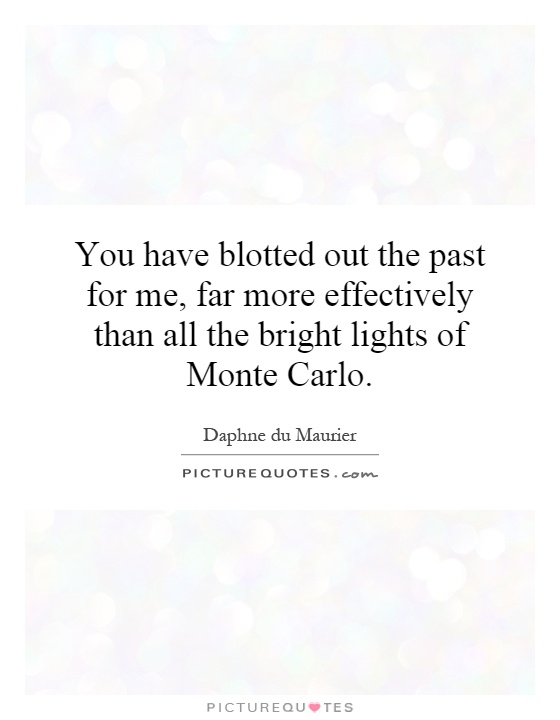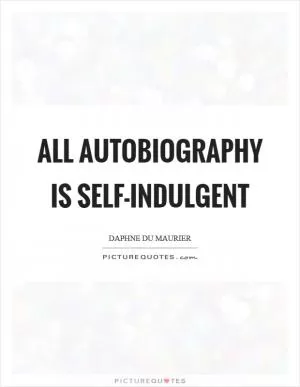You have blotted out the past for me, far more effectively than all the bright lights of Monte Carlo

You have blotted out the past for me, far more effectively than all the bright lights of Monte Carlo
Daphne du Maurier, the renowned British author, was known for her ability to transport readers to different worlds through her captivating storytelling. One of her most famous works, "Rebecca," is a prime example of her talent for creating vivid and immersive narratives. In this novel, the protagonist finds herself in a whirlwind of emotions as she navigates the complexities of her new life at Manderley, the grand estate of her wealthy husband, Maxim de Winter.The quote, "You have blotted out the past for me, far more effectively than all the bright lights of Monte Carlo," is a powerful statement made by Maxim to his new wife. In this moment, he is expressing his gratitude for her presence in his life and the way she has helped him move on from his troubled past. The comparison to Monte Carlo, a glamorous and bustling city known for its opulence and extravagance, highlights the transformative impact that love and companionship can have on a person's life.
For Maxim, the past is a dark and haunting shadow that looms over him, casting a pall of sadness and regret. His first marriage to Rebecca, a beautiful and enigmatic woman who died under mysterious circumstances, has left him scarred and haunted by memories of a life he can never reclaim. However, with the arrival of his new wife, he finds solace and comfort in her presence, allowing him to finally let go of the past and embrace a brighter future.
Du Maurier's skillful use of language and imagery in this quote captures the essence of Maxim and his wife's relationship, illustrating the profound impact they have on each other's lives. Through their love and support, they are able to overcome the shadows of the past and create a new beginning filled with hope and happiness. This theme of redemption and renewal is a recurring motif in Du Maurier's work, showcasing her ability to explore the complexities of human emotions and relationships with depth and nuance.












 Friendship Quotes
Friendship Quotes Love Quotes
Love Quotes Life Quotes
Life Quotes Funny Quotes
Funny Quotes Motivational Quotes
Motivational Quotes Inspirational Quotes
Inspirational Quotes